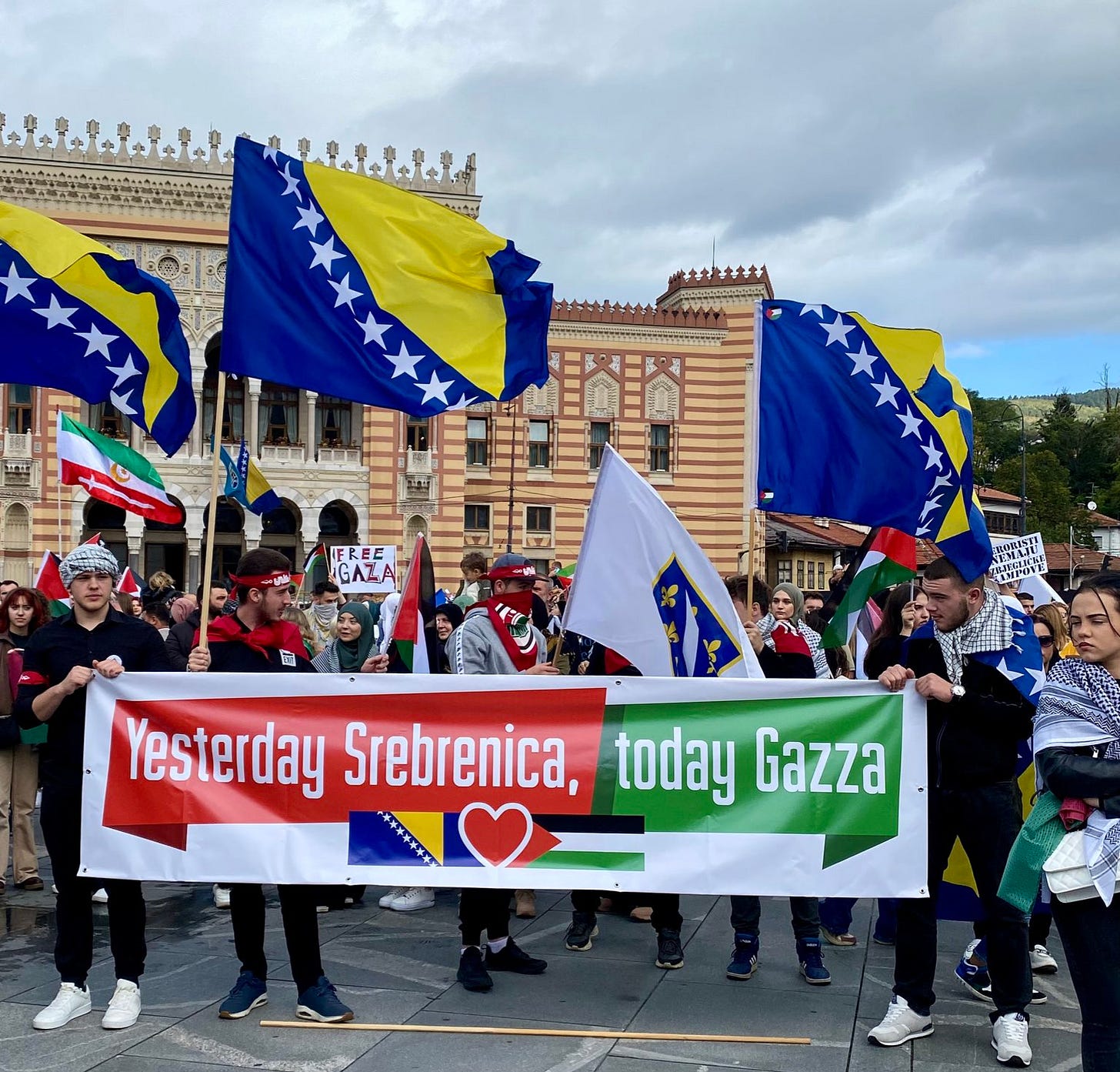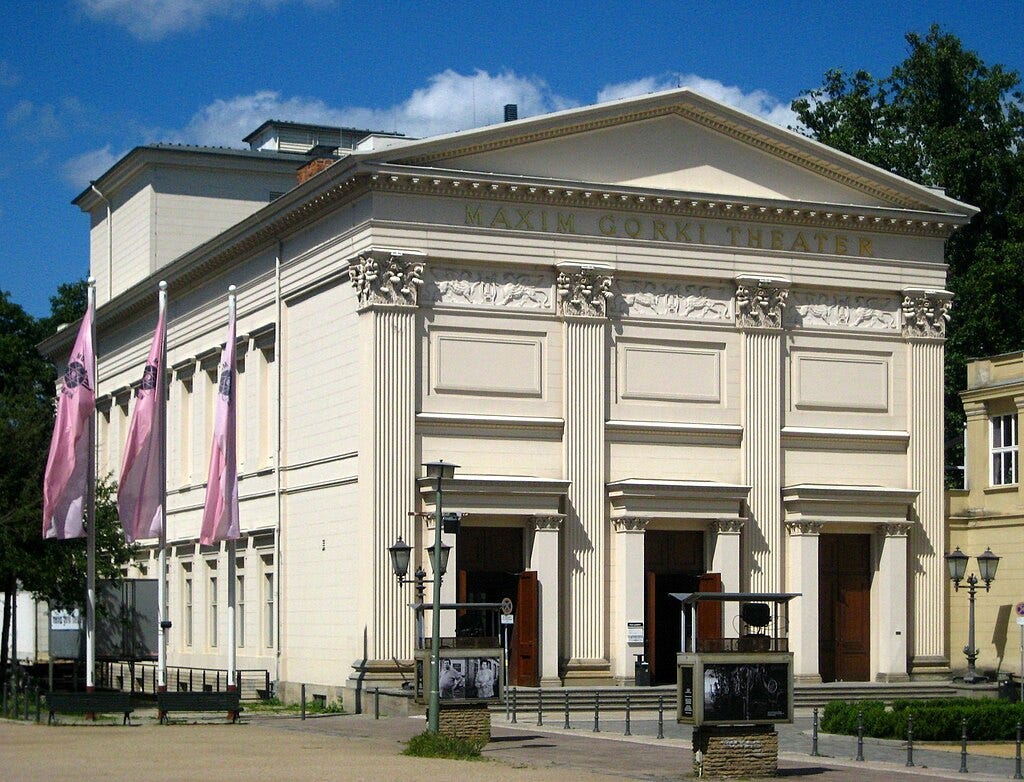‘Yesterday Srebrenica, today Gaza’
As protests against the ongoing siege of Gaza spread around the world, particularly notable is the rally held in the Bosnian capital Sarajevo
As Israel’s siege of Gaza enters its third week, the death toll continues to climb, now far exceeding that of previous conflicts in the region such as Operation Cast Lead (2008-2009). Warnings that Israel is on the verge of (or in the midst of) committing a genocide are being raised by international law scholars and UN experts. As important as those voices, are the people from all walks of life attending rallies in support of Palestine in cities throughout the world. A demonstration organised by the Palestinian community in Sarajevo, the capital of Bosnia and Herzegovina, attracted thousands.
“Sarajevo has always been on the right side of history.” The city’s mayor Benjamina Karic told the assembled crowd “Sarajevo always fought for the innocent ones and for justice. We know best how it is to run out of water, food and when children are dying, in Sarajevo, as the city under the longest siege in the modern history,”
From 1992 to 1995 the city was under siege from the Bosnian Serb army who aimed to create a Serb state that would be ‘ethnically cleansed’ of the largely Muslim Bosniak population. Mass killings of Bosniak men were carried out throughout the country, the largest, in Srebrenica, was later ruled a genocide by the International Criminal Tribunal for the former Yugoslavia.
The beliefs that led to the Bosnian genocide have inspired todays far-right (including the Christchurch shooter, who began his massacre by playing a Serbian folk song glorifying war criminal Radovan Karadžić) An early example of what is now called the ‘great replacement’, the belief that Muslims will through higher birth rates ‘replace’ non-Muslim populations in Europe and elsewhere, became prominent among Serbian intellectuals in the lead up to the atrocities committed in the early 90s, as did the idea that Bosniaks were not a legitimate people with a right to live in the area.
Bosniaks, such as journalist Refik Hodzic, are seeing parallels with history and the current events in Gaza:
“For instance, the very same arguments that were used to justify inflicting violence on Bosnians then are now being used against Palestinians in Gaza. Arguments such as they are “not civilians” and they are all supporters of the forces fighting in their name. Arguments like “they are all terrorists, jihadists”. This same language was being used against Bosnians back then.”
It is unsurprising that in the Balkans, a place where a genocide took place in living memory, so many would demonstate in solidarity with the people of Gaza. Balkan artists in Germany, where police banned pro-Palestine rallies and a rally in defiance of the ban resulted in mass arrests, have also been speaking out. Serbia born Milica Tomić, along with others, withdrew the “Four Faces of Omarska” exhibition from the Maxim Gorki Theater after the theatre cancelled a performance of ‘The Situation’ a play that dealt with themes related to the occupation of Palestine. “Hamas' attack on Israel puts us on Israel's side.” read a statement from the theatre. “Israel's now successful response affects all Palestinians and will push them even further into the arms of Hamas. But Israel has to fight back.” (ironically, the webpage advertising the now cancelled play notes “Any attempt to criticise the policy of occupation and governmental positions is either ridiculed or branded as a betrayal.”)
“We can not speak about Omarska without speaking about Gaza” wrote Tomić. Omarska was the location of a concentration camp where 6,000 Muslims and Croats were held in 1992. Many did not survive the ordeal and the region contains 14 mass graves. Lana Bastašić, the Bosnian and Serb novelist, wrote of the “deafening silence” in Germany, where she now lives, a place where “Palestine is the number one forbidden word”.
“I come from a silent place soaked in blood. I never thought I would feel that same silence in Germany. But it is what this country does best: it looks the other way.”




